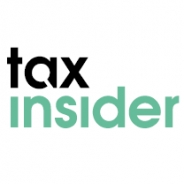
It is often more tax-efficient for private, family companies to pay dividends to shareholders rather than a salary or bonus especially if the shareholder is a basic rate taxpayer as the tax rate is lower at 7.5% when the tax charge on salary or bonus is 20%.
However, a company can only pay dividends out of its “distributable profits” which are defined as being the company’s profits after corporation tax has been paid. This definition means that even if the bank account is in credit the company needs to have sufficient retained profits to cover the dividend at the date of payment. A dividend paid without sufficient profit to substantiate the payment is termed an 'unlawful dividend', effectively meaning that the company is trading as insolvent and is therefore considered to be breaking the law.
If an 'unlawful' dividend is found to have been made then HMRC could argue that rather than being a dividend, the payment has been incorrectly designated and is, in effect, a loan. Further, if the 'loan' is not repaid within nine months and one day of the company’s year-end then under Corporation Taxes Act 2010 s 455 the company will be charged 32.5% of the gross amount paid. The rate charged mirrors the higher rate of dividend tax percentage. In addition, if the shareholder participator is also an employee (which can include a director) then a benefit in kind income tax charge may be levied on the individual concerned. The rules state that if you are an employee and you owe the company more than £10,000 at any time during the year then the loan is treated as a benefit in kind.
More serious consequences could arise should the company go into liquidation. In such a situation it is routine for the liquidator or administrator to review the conduct of the directors over the three years prior to insolvency. If it is found that a dividend has been paid ‘unlawfully’ then the liquidator or administrator on behalf of the creditors can apply for the participators to personally repay the amount withdrawn. HMRC (or any other creditor) could argue that the director(s) should have known or been aware (or at least had reasonable grounds to believe) that such a payment was 'unlawful'.
The time limit for recovery of such dividends is generally six years from the date of declaration or its declared payment date, whichever is later.
Actions such as unlawful distributions may also result in disqualification proceedings being taken by the Government's Insolvency service which could result in the director being prohibited for acting as for 2 to 15 years along with a financial penalty.



Please register or log in to add comments.
There are not comments added